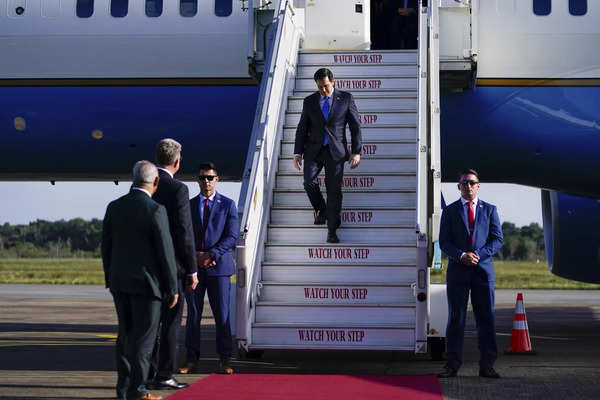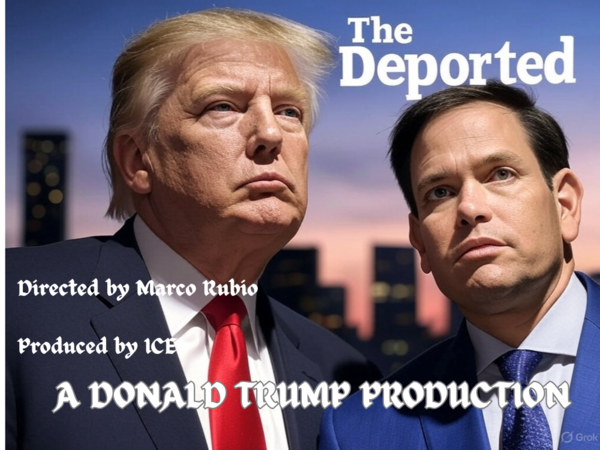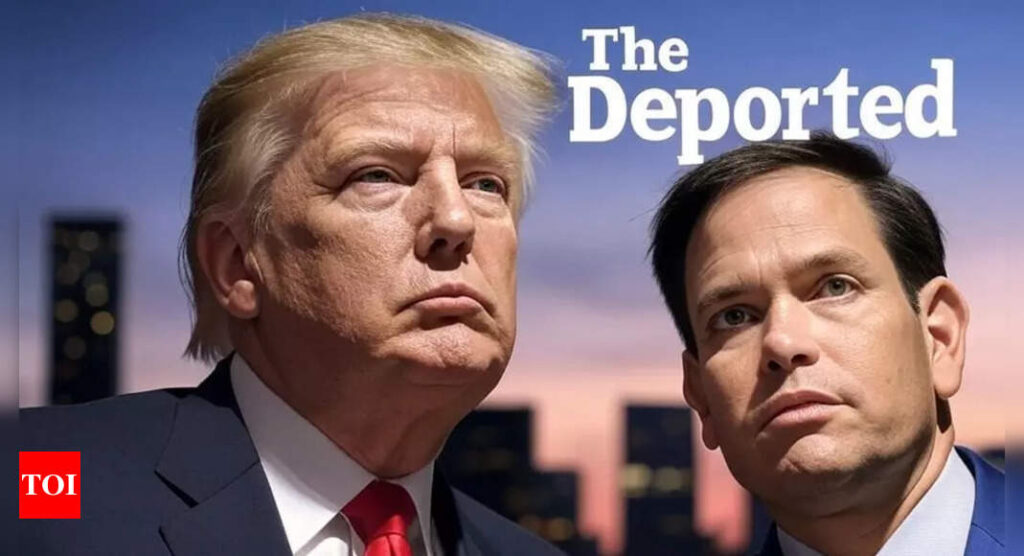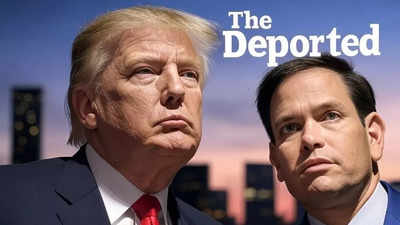As the sun started getting low on a Tuesday evening in Somerville, Massachusetts, 30-year-old Rumeysa Ozturk was on her way to join friends for Iftar, ready to break her Ramazan fast. But the Turkish doctoral student at Tufts University and Fulbright scholar never made it. Just steps from her apartment near campus, she was stopped, physically restrained, and detained by immigration officers, according to her attorney Mahsa Khanbabai. Her alleged offense? Not overstaying a visa or committing a crime—but writing an op-ed. Within days, her visa was revoked, her academic future shattered. And Ozturk’s case, while jarring, is far from isolated. It marks one thread in a broader, fast-accelerating crackdown by President Donald Trump’s administration—one that’s turning international students into political collateral in a sweeping campaign to remake the American university system.
What began ostensibly as an effort to root out antisemitism and restore “order” on campus has morphed into a wide-ranging assault on speech, scholarship, and immigration status. The weapon of choice: visa revocation and surveillance. The target: foreign students, especially those daring to protest or post anything deemed even remotely critical of US allies or policy.
This is not just policy enforcement—it’s ideological enforcement. And it’s transforming America’s campuses in ways that will echo far beyond the quad.
Free Speech: The Chilling Effect

The United States once welcomed international students with the promise of academic freedom. Today, they are learning the hard way that freedom is conditional—and can be revoked.
Also Read: Many international students in US told to self-deport due to ‘activism’
Since January, hundreds of foreign students have been forced to leave the country after receiving terse emails from the State Department. Their visas were canceled without warning. The reason? Participation in protests, writing opinion pieces, or simply sharing content on social media.
One Columbia student received a revocation notice after liking a meme. Others were flagged for attending rallies or reposting statements that challenged US policy in Gaza. Many have now deleted their online profiles altogether, whispering in dorm rooms instead of marching in the streets.
Some, like Mahmoud Khalil—a Palestinian graduate student and legal permanent resident—have been arrested outright. His offense? Helping organize protests. He holds a green card and is married to a US citizen, yet remains in ICE detention.
The effect is clear: fear. Protest has become a deportable offense. Foreign students, once vibrant voices in campus debates, are falling silent. And administrators, facing threats of funding cuts, are quietly helping to keep them that way.
Surveillance: “Catch and Revoke”

U.S. Secretary of State Marco Rubio arrives at Johan Adolf Pengel International Airport in Paramaribo, Suriname, Thursday, March 27, 2025. (Nathan Howard/Pool photo via AP)
Behind this purge lies a new weapon: AI surveillance.
Spearheaded by Secretary of State Marco Rubio, the “Catch and Revoke” initiative uses artificial intelligence to scan the social media accounts of international students, searching for anything that appears sympathetic to Hamas, critical of Israel, or supportive of campus protests. If flagged, the student’s visa is automatically revoked.
The system doesn’t just monitor new applicants—it retroactively examines current students. An Instagram story from two years ago? A retweet from a classmate? Fair game. The State Department has instructed consular officials to screenshot any “derogatory” content and attach it to the student’s immigration file. No context. No appeal.

More than 300 students have already lost their visas under this system. They are told to “self-deport” via a mobile app and report to a US consulate to have their visa stamp physically canceled. Those who don’t comply face detention or future reentry bans.
What was once a land of free expression is now a digital minefield. And for foreign students, a meme can mean exile.
Academic Disruption: Universities Under Siege

The crackdown isn’t limited to students. Entire universities are being pressured to bend the knee.
Columbia University became the first high-profile casualty. In March, the federal government froze $400 million in grants and contracts, accusing the school of failing to address antisemitism and allowing “radical activity” to fester. The message was unambiguous: comply, or collapse.
Columbia folded.
The university agreed to ban face masks at protests, give campus security arrest powers, impose strict discipline policies, and submit its Middle Eastern studies department to federal oversight. In short: autonomy traded for survival.
Also Read: Hundreds of international students wake up to an email asking them to self deport for campus activism
The consequences were immediate. Medical research was paused. Labs were shut down. Studies on uterine fibroids, AI-assisted hospital tools, and public health initiatives ground to a halt. Professors warned that the soul of the university—its independence—was being sold off piece by piece.
Other universities took note. Harvard, Stanford, and the University of California system are now hiring lobbyists with Republican ties. Davidson College brought on federal advisors for the first time in its history. Johns Hopkins laid off over 2,000 staffers after federal funding threats.
Capitol Hill, meanwhile, is preparing to weaponize the tax code. Vice President JD Vance has proposed raising the endowment tax from 1.4% to a punishing 35% for institutions that host disruptive protests. Senator Tom Cotton wants a one-time windfall tax on elite schools to fund “patriotic education.” The message: toe the line, or pay the price.
Immigration Law: Weaponized Ambiguity
What makes this crackdown uniquely effective is its legal fog. Student visas are fragile by design, and the administration is exploiting every ambiguity.
Most F-1 and J-1 visa holders are admitted for “duration of status” rather than a fixed period. That used to mean they could stay as long as they maintained full-time enrollment. Now, a single SEVIS record termination—triggered automatically after visa revocation—can plunge a student into unlawful presence. Stay 180 days? Face a three-year reentry ban. Stay 365? That’s a decade. The rules, once soft-edged, have hardened. And students are often unaware they’re even out of status until they receive the dreaded email telling them to leave immediately.
Some try to fight back. An Indian postdoc in Louisiana is challenging his detention. A Palestinian graduate student at Cornell is suing after being told to report to ICE. But these are uphill battles—fought without time, resources, or certainty. Even green card holders are not safe. Mahmoud Khalil and another Columbia student, Yunseo Chung, both legal permanent residents, are being targeted under a rarely used clause that allows deportation if someone is deemed to “threaten US foreign policy.” Their lawyers say it’s a constitutional outrage: political speech treated as national security risk.
And that’s the new paradigm: express the wrong opinion, and suddenly, your immigration status is a weapon the government can turn against you.
The Bigger Picture: Academia Under Authoritarian Pressure

This isn’t just an immigration story. It’s a story about American higher education under siege. Universities have always been messy, raucous spaces—laboratories for dissent, debate, and idealism. That messiness is now seen as a liability. Order must be restored. Dollars must be protected. Ideologies must be policed. What began as a crackdown on perceived antisemitism has expanded into a full-spectrum culture war. DEI programs are being dismantled. Gender studies departments are under scrutiny. Professors are resigning. International students are self-deporting. And university presidents are, with rare exception, staying silent.
Because the cost of defiance is existential. Lose federal funding, and entire research ecosystems collapse. Surrender autonomy, and maybe you survive. It’s not just about compliance. It’s about control. Control of the curriculum. Control of the faculty. Control of who gets to be on campus and who doesn’t. The Trump administration has found its leverage point—and it’s using it.
What Remains of the University?
In his earlier presidency, Trump threatened to revoke funding from “woke” universities. In his second term, he’s doing it—with ruthless efficiency.
The result is a chilling new reality: foreign students watch their words. Universities gut their principles. Surveillance replaces debate. And dissent becomes a deportable act. What’s at stake isn’t just immigration policy. It’s the integrity of the American university—its commitment to truth, inquiry, and freedom. That foundation is now shaking. The question is: will anyone rebuild it, or are we watching the quiet construction of a new kind of campus—quiet, obedient, and afraid?


